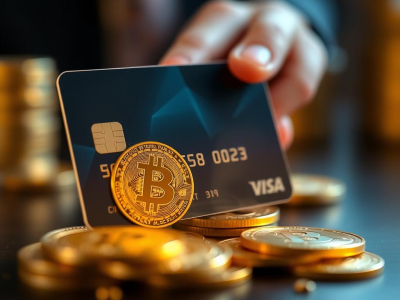
For seamless international transactions, adopting a cryptocurrency card can significantly reduce fees and streamline the process. These cards allow users to make payments directly from their cryptocurrency wallet, converting assets into local currency at the point of sale without the need for intermediate exchanges.
Security remains a top priority with cryptocurrency cards. Many providers implement robust encryption and multi-factor authentication to safeguard user data and funds. By utilizing these tools, you minimize risks associated with traditional financial transactions while enjoying the benefits of digital currencies.
When considering a cryptocurrency card, evaluate its exchange rates and transaction fees carefully. Some cards offer competitive rates that can outperform conventional banking services, making them an attractive option for frequent international travelers or businesses engaged in cross-border trade.
By leveraging cryptocurrency cards, users can facilitate faster payments globally while maintaining better control over their assets. This innovative approach enhances not only efficiency but also flexibility in managing finances across different currencies.
Choosing the Right Card
Select a cryptocurrency card that aligns with your payment habits and international travel needs. Focus on cards offering low fees for transactions across multiple currencies. Look for those that convert cryptocurrency to fiat without excessive charges, particularly when making frequent purchases.
Evaluate security features critically. A robust card should provide strong protection against fraud and unauthorized access to your wallet. Two-factor authentication and insurance policies are essential components to consider.
Convenience plays a significant role in selecting the right card. Ensure it has widespread acceptance at retailers worldwide and online platforms, facilitating seamless payments regardless of location.
Check the transaction limits imposed by the card provider. Some cards may restrict daily spending or withdrawal amounts, impacting usability during international trips or large purchases.
Finally, assess the customer service reputation of the issuer. Accessible support can be invaluable if issues arise during transactions or wallet management while abroad.
Understanding Fees and Limits
Before selecting a cryptocurrency card, analyze the fee structure associated with international transactions. Many providers charge conversion fees when exchanging cryptocurrencies to local currencies. Look for cards that offer competitive rates or no conversion fees at all.
Transaction limits can vary significantly between different cards. Some may impose daily or monthly spending caps, which could hinder your ability to make larger payments. Verify these limits to ensure they align with your financial needs.
Consider wallet compatibility as well. Certain cards only support specific cryptocurrencies or wallets, which can affect your convenience during transactions. Ensure your preferred wallet integrates smoothly with the card you choose.
Security is paramount; check if the card provider offers features such as two-factor authentication and fraud protection to safeguard your assets during payments. Review user feedback regarding security incidents related to the card issuer.
Finally, assess any additional fees tied to ATM withdrawals, currency exchanges, or inactivity charges that could diminish the benefits of using the card for global transactions. A thorough understanding of these factors will help in making an informed decision about which cryptocurrency card best suits your needs.
Security Measures to Consider
To ensure the safety of your transactions and payments when using cryptocurrency cards, implement the following security measures:
- Enable Two-Factor Authentication (2FA): Always activate 2FA on your wallet and card accounts. This adds an additional layer of protection against unauthorized access.
- Monitor Transactions Regularly: Frequently check transaction history for any unauthorized activity. Immediate reporting can mitigate potential losses.
- Use Strong Passwords: Create complex passwords that combine letters, numbers, and symbols. Avoid common phrases or easily guessable information.
- Update Software: Keep your wallet software and apps up to date to protect against vulnerabilities that hackers may exploit.
- Select Trusted Providers: Research the reputation of card issuers before committing. Look for reviews related to their security practices and customer support responsiveness.
Avoid sharing sensitive information regarding your wallet or card details with anyone. Phishing attacks are common in the cryptocurrency space, so be cautious of unsolicited communications.
- Secure Your Wallet: Use hardware wallets for storing significant amounts of cryptocurrency. They offer a higher level of security compared to online wallets.
- Limit Card Exposure: Use virtual cards for online transactions whenever possible. This reduces risk by not exposing your main card details during international payments.
By implementing these strategies, you can enhance the security of your cryptocurrency transactions while enjoying the convenience they offer in global markets.
Managing Exchange Rates
Monitor exchange rates closely through reliable financial platforms or apps. Use real-time data to make informed decisions about when to convert your cryptocurrency for payments. This proactive approach can help mitigate potential losses due to unfavorable rate fluctuations.
Consider setting alerts for specific exchange rates that meet your target value. Many wallets and trading platforms offer this feature, allowing you to react quickly when conditions are favorable.
Evaluate the fees associated with currency conversion on your card. Some cards impose higher fees for exchanging cryptocurrency compared to others. Calculate these costs before making transactions, as they can significantly impact your overall expenses.
Utilize stablecoins for transactions where volatility is a concern. These cryptocurrencies are pegged to traditional currencies and provide more stability in exchange rates, reducing the risk associated with price swings during payment processing.
Understand the implications of cross-border transactions on exchange rates. Different jurisdictions may have varying regulations affecting currency conversions and fees, which could influence the total amount received by the recipient.
Regularly reassess the performance of your card against market trends. As competition increases, new cards may offer better exchange rates or lower fees, enhancing your convenience in managing payments globally.


You can be the first!